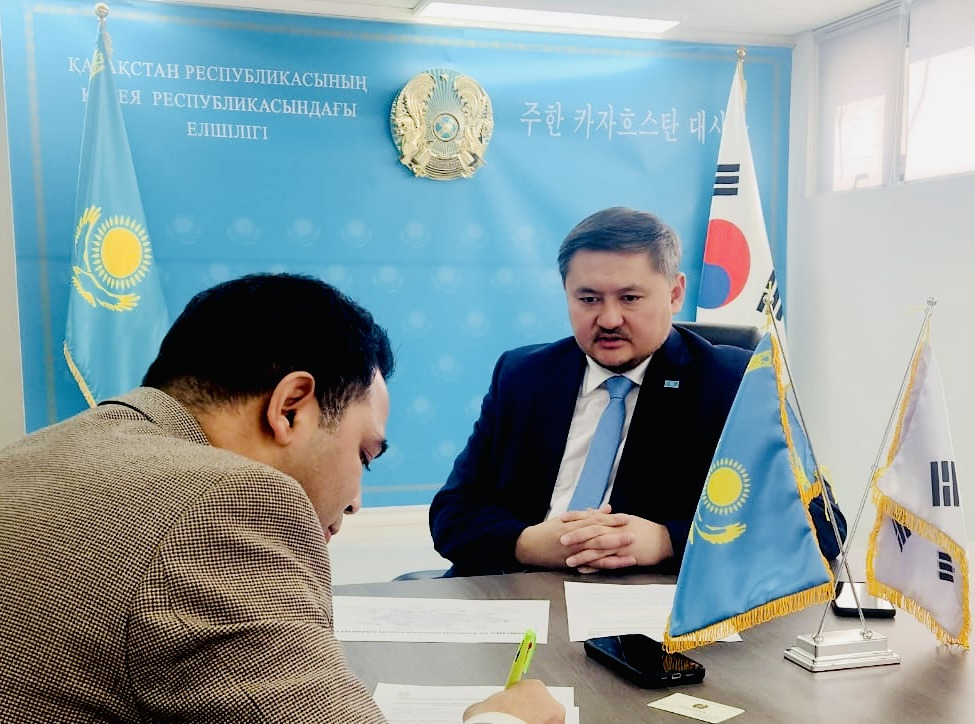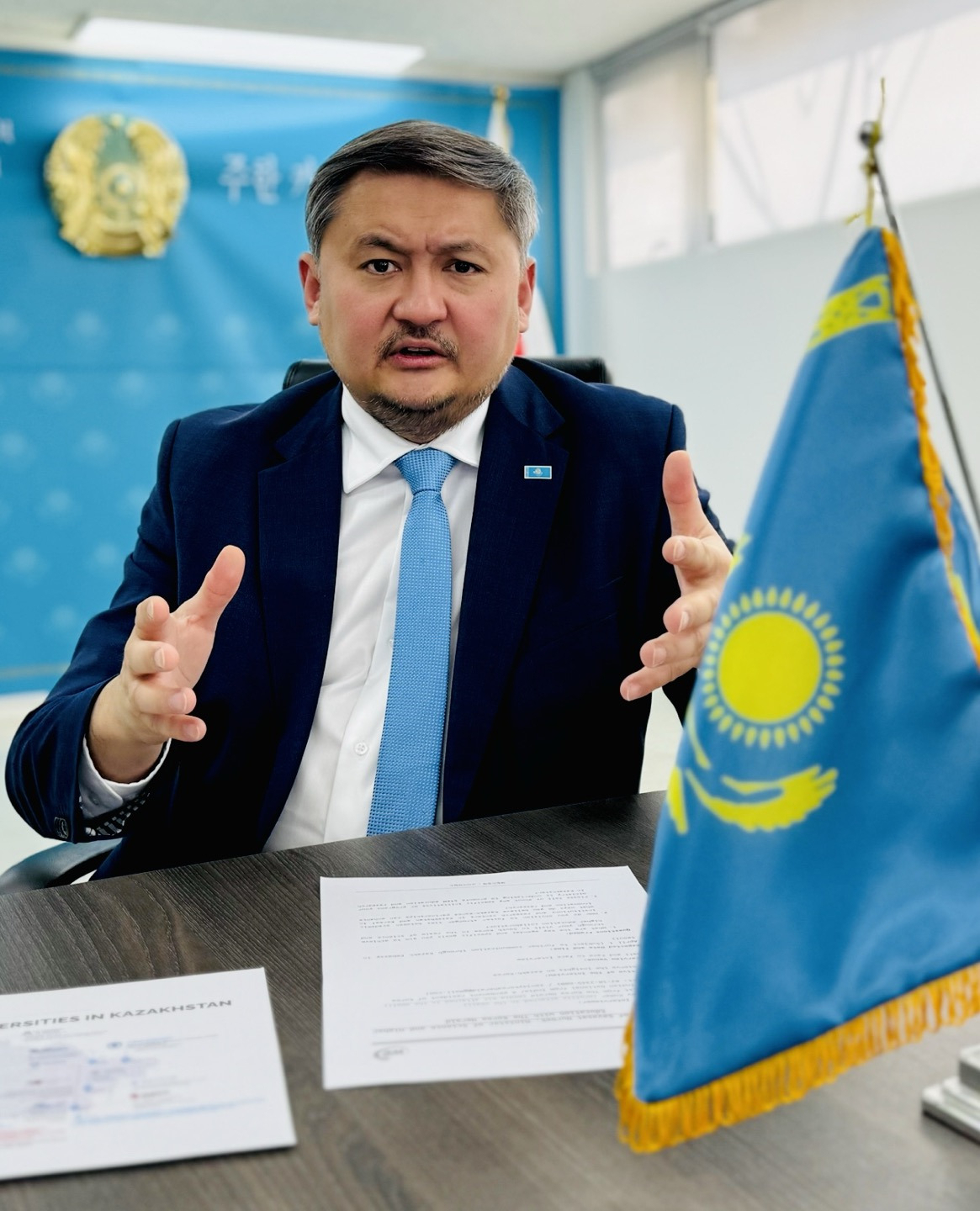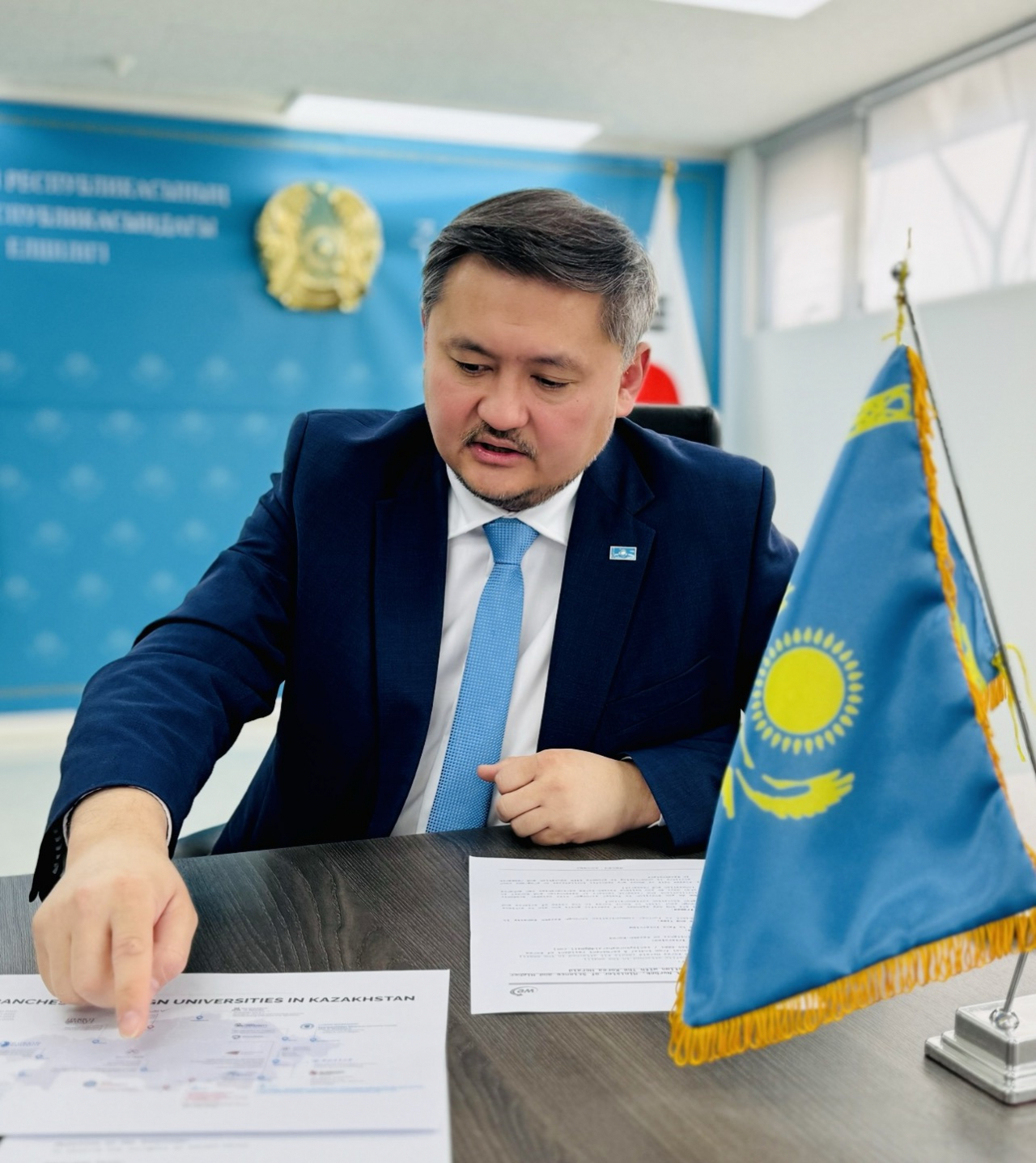[Herald Interview] Kazakhstan needs Korea's expertise via joint research, education: minister
By Sanjay KumarPublished : April 9, 2024 - 17:48

Kazakhstan needs Korean expertise through joint partnerships to realize the Central Asian country's potential in education, research and technology, said Sayasat Nurbek, Kazakhstan's minister of science and higher education, in an interview with The Korea Herald on Monday.
Nurbek was on a two-day visit to South Korea to deepen Kazakhstan-Korea collaboration in research and higher education.
“We are buying a supercomputer this year. So we'll have computing power. But mostly we want to use it in joint research projects,” said Nurbek, adding that the Korea Advanced Institute of Science and Technology and Kazakhstan's Ministry of Science have agreed to joint research collaborations.
"Korea serves as a model country in innovation, particularly in establishing research-intensive universities like KAIST," he affirmed, outlining ambitious plans for university-to-university partnerships such as hosting annual conferences and establishing branches of prestigious Korean universities in Kazakhstan.
He said that language barriers, logistical challenges and the complexities of the geopolitical landscape adversely affected cooperation between the two countries, but Kazakhstan's educational reforms and growing university partnerships with Korean universities are now enhancing ties.

According to Nurbek, Korean universities are increasingly offering English programs, but there's still a need for more comprehensive initiatives, and Kazakhstan is initiating a Korean language program to equip students with proficiency in the Korean language.
“We're starting a Korean language program for the Seoultech Partnership,” said Nurbek, referring to the nickname of the Seoul National University of Science and Technology.
The university is to set up a school of computer engineering and artificial intelligence in Kyzylorda, South Kazakhstan, he added.
“We're bringing in teachers from Korea so that the students of that school will have proficiency and will have training in the Korean language as well,” said Nurbek.
“We're not very far from each other in terms of the large Asian continent,” he underlined.
“Overall, there are not many limitations,” stressed Nurbek.
Korea is strategically aiming to build partnerships with Central Asian countries, recognizing the region's significance as an emerging market and a source of energy and resources.
Central Asian nations view Korea's development model favorably and seek cooperation for economic development and industrial diversification.
Agreements with universities such as JEI University, Dong-Eui University and Woosung University underscore the commitment to bolstering educational ties, according to Nurbek.
He said the Korean economy needs a more qualified workforce due to the demographic downturn, and having a foothold in Kazakhstan will open the gates for Korean universities in the Central Asian region to hire and nurture talented employees.
According to Nurbek, Dong-Eui University, known for its industrial connections with Hyundai and Kia, will offer a dual-degree program to train technical personnel for Kia's car production factory in Kostanai.

Meanwhile, the minister also discussed Kazakhstan’s groundwork for AI literacy programs and regulatory frameworks to revolutionize research in biotech and astronomy.
“Now is an era of future-proof education,” he said introducing Kazakhstan’s AI strategy and partnerships with companies like Huawei, Google and Microsoft to offer AI literacy courses in leading technical universities.
The course will become compulsory for all college-level students in Kazakhstan, regardless of their majors, aiming to ensure that every graduate is proficient in using AI, according to Nurbek.
“We are making Kazakhstan an AI-ready nation,” said Nurbek, referring to its partnerships with Seoultech, the City University of Hong Kong and the Moscow Engineering Physics Institute (MEPI).
"By embracing AI and fostering international collaborations, Kazakhstan and South Korea are poised to chart a path towards innovation and prosperity," he said.



















![[Today’s K-pop] Treasure to publish magazine for debut anniversary](http://res.heraldm.com/phpwas/restmb_idxmake.php?idx=642&simg=/content/image/2024/07/26/20240726050551_0.jpg&u=)